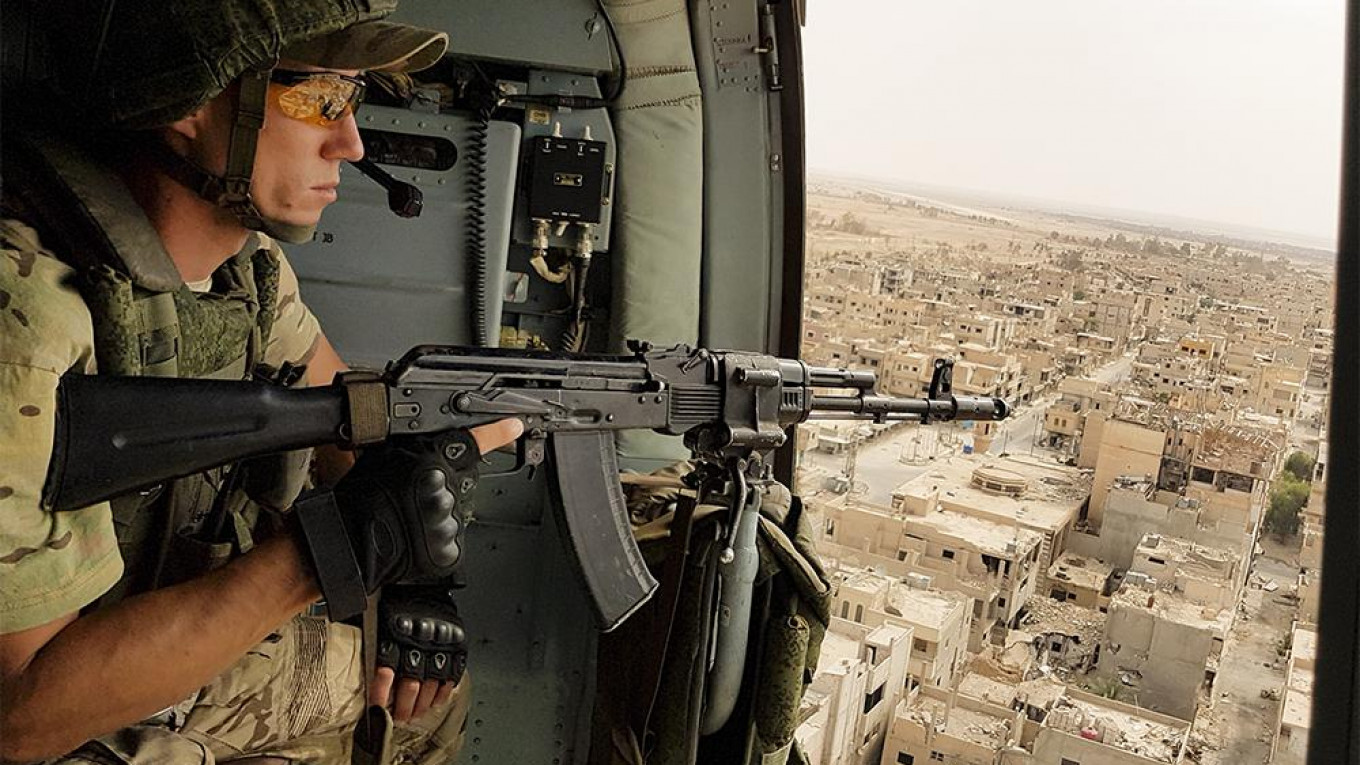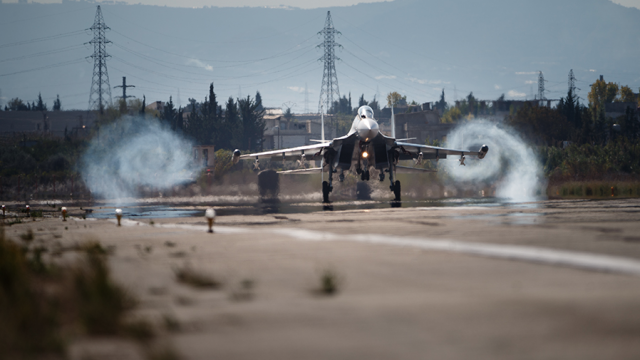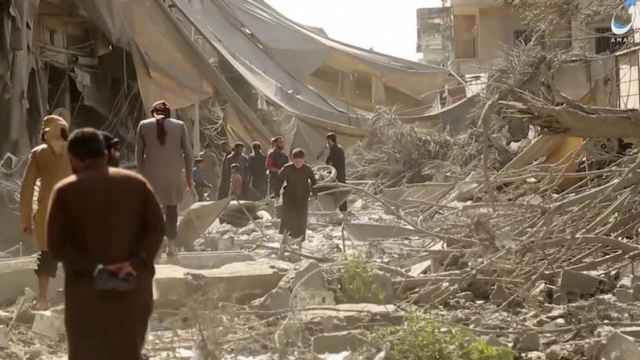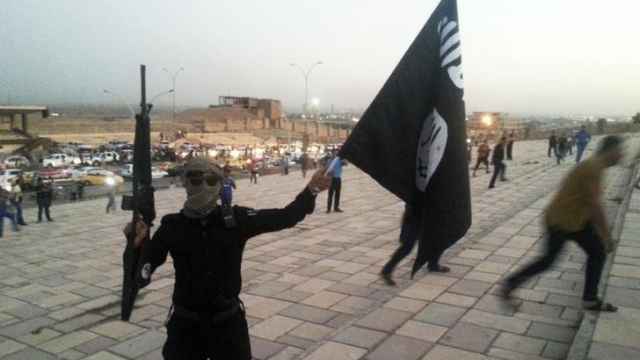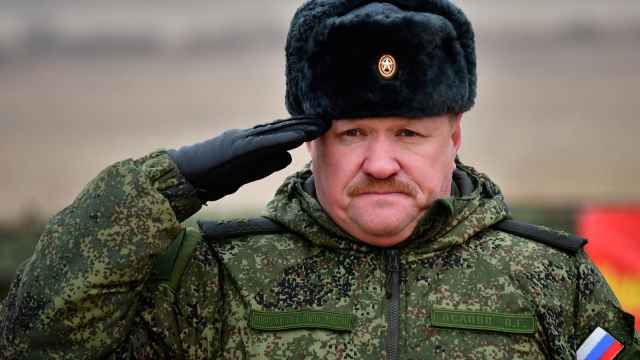Two years ago, on Sept. 30, 2015, Russian warplanes launched their first airstrikes in Syria, plunging Russia into a civil war that had already been festering for four years.
Moscow intervened in Syria vowing to fight Islamic State and Jabhat al-Nusra, terrorist groups banned in Russia. Its objective was to transform its relationship with Washington and Brussels by disarming an imminent threat to the West after it had hit Russia with sanctions for the Kremlin’s “adventures in Ukraine.”
Days before the airstrikes began, Putin delivered a speech at the United Nations General Assembly calling for a united front against international terrorism, framing it as the modern equivalent of World War II’s coalition against Hitler.
But two years later, Russia’s hopes of winning concessions in Ukraine for its campaign against Islamic State have come to very little. Putin’s strategic alliance with the United States never materialized.
Russia, however, has met two less lofty goals. One was to rescue the Syrian regime of Bashar Assad, Moscow’s longtime ally, from the inevitable defeat at the hands of an armed Sunni rebellion.
Moscow leveraged its ties with Iran, another regime ally, to deploy Shia militias from Lebanon, Iraq, Afghanistan and Pakistan to fight the Syrian rebels. This allowed Moscow to send a modest ground force to Syria — artillery and some special operations forces — without a large footprint.
Russia helped Assad recast the civil war and the popular uprising against his regime as a fight against jihadi terrorists by focusing its airstrikes over the last two years on moderate Syrian rebel groups, while paying little attention to Islamic State.
This rendered the conflict black and white — a binary choice between Assad and jihadists. It allowed Moscow to sell its intervention as support for Syria’s sovereignty against anarchy and terrorism. Russia made clear that it saw the path to stability in the Middle East as helping friendly autocrats suppress popular uprisings with force.
At home, the Kremlin sold its Syrian gambit as a way of defeating terrorism before it reached Russian soil. Russia, after all, needed to prevent Russians and Central Asians who joined Islamic State from returning home to wreck havoc at home soil.
Moscow was also able to use Syria as a lab for its newest weaponry.
By workshopping newly-acquired precision cruise-missile strikes, Russia joined the United States in an exclusive arms club. Showcasing military prowess, while keeping casualties figures low — some 40 Russia servicemen died in Syria — it was able to win public support at home for the intervention.
But perhaps most importantly, the Kremlin’s intervention in Syria has reaffirmed Russia’s status as a global superpower which is capable of projecting force far from its own borders.
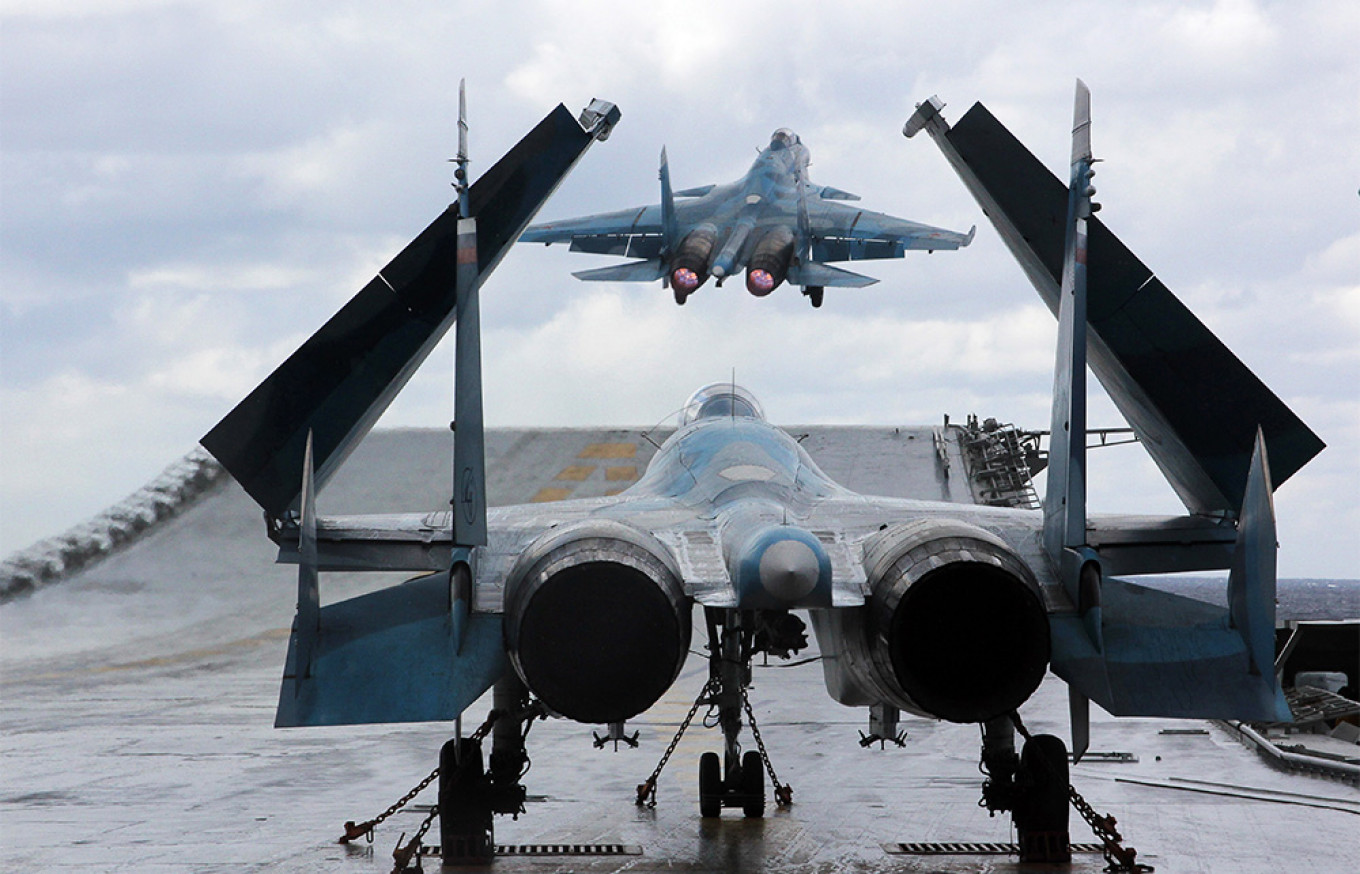
While Moscow may have been offended by former U.S. President Barack Obama’s dismissive description of Russia as a “regional power,” it impressed Arab leaders with its unwavering support for Assad, which was important at a time when U.S. commitment to allies’ security and the stability in the region was in doubt.
Moscow’s backing of Assad ensured it had channels with Saudi Arabia, the United Arab Emirates and Qatar, despite their support for Syrian rebels. It was even able to convince the Gulf to wind down its support for the opposition as a Russia-led victory for the regime became inevitable.
Russia’s alliances with Jordan and Egypt proved useful in setting up direct lines to armed opposition groups to reach de-escalation agreements. And even as it fights alongside Shia Iran, Moscow has avoided being drawn into a sectarian proxy war with Sunni Arab states.
Russia’s most stunning diplomatic coup was to change Turkey’s calculus in the war from a proxy adversary into a major partner in securing the decisive victory in Aleppo. Through the Astana process, Russia alongside Turkey wound down fighting with moderate rebels.
Russia’s victory in Syria was helped by Washington’s decision not to immerse itself into Syria and a war by proxy with Russia. Instead, the U.S. focused its military operations on defeating Islamic State in eastern Syria.
Now, with de-escalation in western Syria, regime forces and Russian airpower are turned to defeating Islamic State, which has brought them into contact with the U.S.-backed Syrian Democratic Forces (SDF) advancing from the northeast as part of their offensive to liberate Raqqa from Islamic State.
The potential for a U.S.-Russia kinetic collision in Syria with unpredictable consequences is escalating. This highlights the looming endgame in Syria and the choices Moscow and Washington will have to make moving forward.
Washington needs to decide whether it wants to stay in Syria for counterinsurgency operations to prevent the re-emergence of Islamic State. It may also decide to block Iran from establishing the “Shia land bridge” from the Iraqi border to the Mediterranean.
But this entails supporting the SDF and helping them control sizeable real estate northeast of the Euphrates river and blocking regime forces and Russia from advancing east.
Moscow needs to decide whether it wants to be dragged into Assad and Iran’s strategy of ensuring a complete military victory in Syria and preventing the opposition from exercising any autonomous self-rule. That could see Russia pulled into a nasty proxy fight with the Americans.
Two years after Russia intervened in Syria, the war may be winding down. But the stakes for Moscow and Washington are stacking.
The views and opinions expressed in opinion pieces do not necessarily reflect the position of The Moscow Times.
A Message from The Moscow Times:
Dear readers,
We are facing unprecedented challenges. Russia's Prosecutor General's Office has designated The Moscow Times as an "undesirable" organization, criminalizing our work and putting our staff at risk of prosecution. This follows our earlier unjust labeling as a "foreign agent."
These actions are direct attempts to silence independent journalism in Russia. The authorities claim our work "discredits the decisions of the Russian leadership." We see things differently: we strive to provide accurate, unbiased reporting on Russia.
We, the journalists of The Moscow Times, refuse to be silenced. But to continue our work, we need your help.
Your support, no matter how small, makes a world of difference. If you can, please support us monthly starting from just $2. It's quick to set up, and every contribution makes a significant impact.
By supporting The Moscow Times, you're defending open, independent journalism in the face of repression. Thank you for standing with us.
Remind me later.



